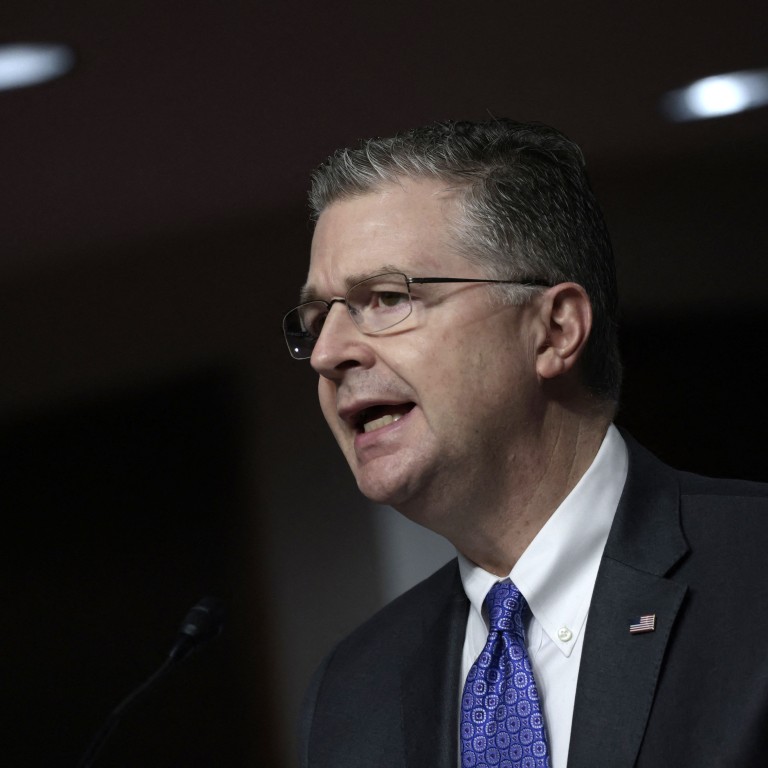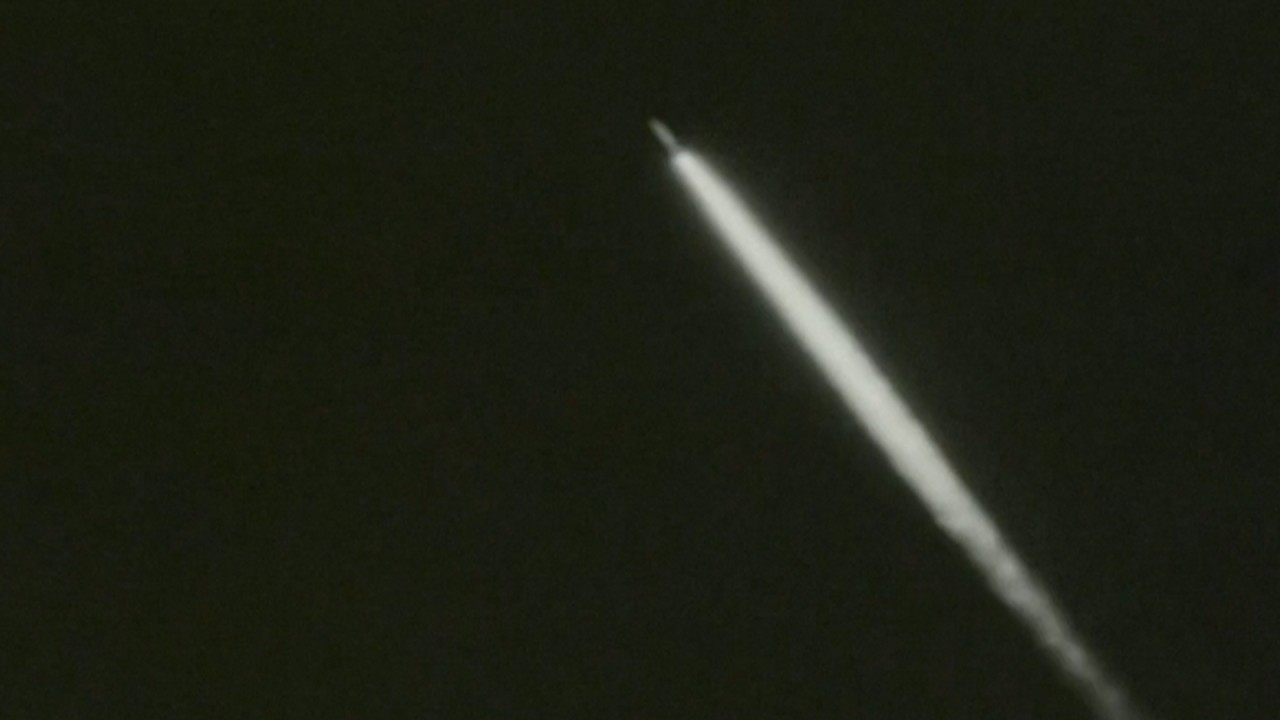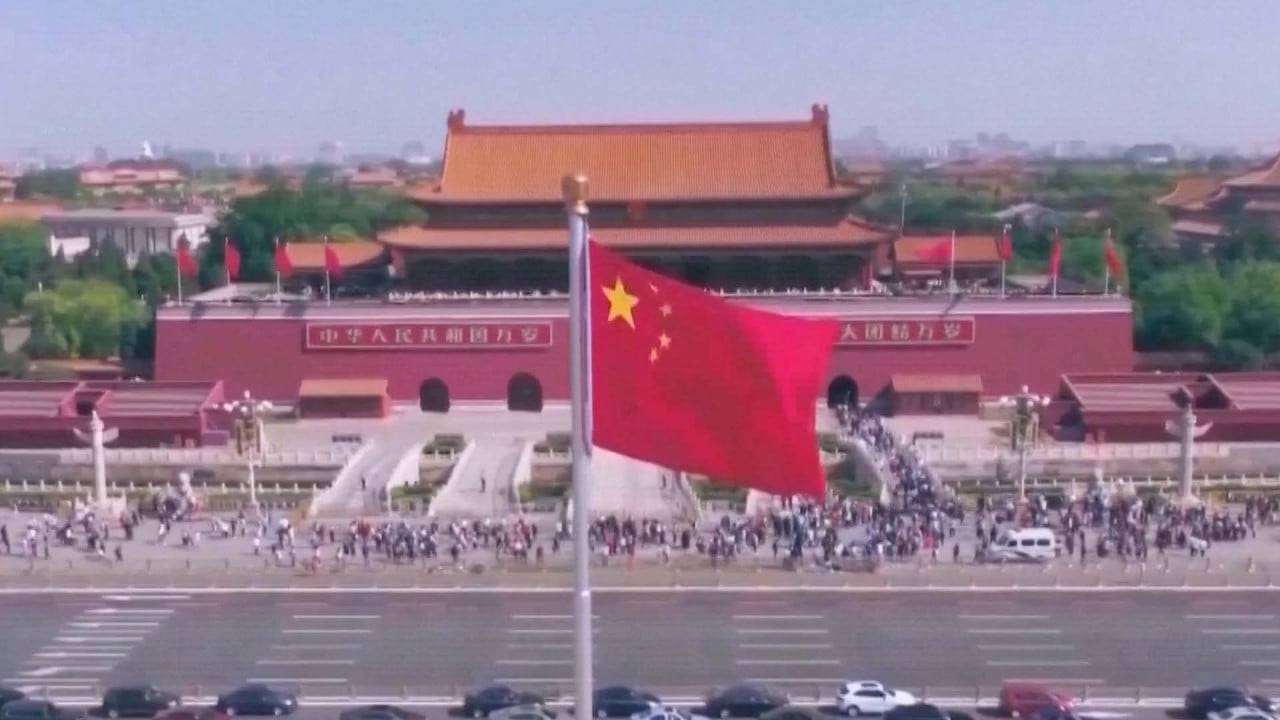
US accuses China of post-Pelosi coercive pressure campaign against Taiwan
- Senior US State Department official says Beijing is trying to intimidate the island and overreacted to House speaker’s trip
- Beijing envoy says Taiwanese independence forces and US trying to change the status quo
The claims follow accusations from a Chinese envoy that Washington “took the first step to provoke China on the Taiwan question”.
“The goal of this campaign is clear – to intimidate and coerce Taiwan, and undermine its resilience,” Daniel Kritenbrink, assistant secretary of state for East Asian and Pacific affairs, said on Thursday.
Kritenbrink said Pelosi’s trip was not unprecedented and was consistent with Washington’s one-China policy, an approach guided by the Taiwan Relations Act, the Three Joint Communiques and the Six Assurances.
“The [People’s Republic of China] overreacted and its actions continued to be provocative, destabilising and unprecedented,” he said, adding that Beijing used the congresswoman’s layover as a “pretext” to launch the “campaign”.
“If we needed an excuse, why had we worked so hard to prevent it from happening in the first place?”
He said Beijing had “made the utmost efforts to prevent this crisis from being imposed on China”, but despite expressed opposition, Washington “chose not to listen”.
Both countries have accused each other of trying to change the “status quo”.
Washington insists on maintaining the present status of cross-strait relations while Beijing says it abides by the international consensus that there is only one China and the island will eventually unify with the mainland.
“Who is changing the ‘status quo’? Not China, but ‘Taiwan independence’ separatist forces and the US themselves,” Qin said.
He said Taiwanese President Tsai Ing-wen was trying to sever ties with the mainland by rejecting the 1992 consensus, and Washington was trying to “contain China” by increasing official interaction with Taiwan, including selling arms to the island and promising to “militarily defend” it.
Kritenbrink countered by accusing Beijing of challenging the status quo.
“While our policy has not changed, what has changed is Beijing’s growing coercion, the PRC’s words and actions are deeply destabilising. They risk miscalculation and threaten the peace and stability of the Taiwan Strait,” he said.
Mainland China and Taiwan split in 1949 at the end of a civil war when the Kuomintang was defeated by Communist Party forces and fled to Taipei.
Beijing sees the island as part of China and has never ruled out the use of force to take control of it. Most countries, including the US, do not recognise Taiwan as an independent state. Washington, however, opposes any attempt to take the island by force.
Pelosi’s arrival on Taiwan earlier this month was greeted by both well-wishers and protesters, with dozens of people gathering outside her hotel and accusing her of being a “warmonger” and “interfering in Chinese affairs”.
Asked how Washington would address unification supporters on the island, Kritenbrink said there was precedent for US congressional trips to Taiwan, including by the House speaker.
“I think it’s important for us to maintain our focus on that – it’s deeply unfortunate and irresponsible that China has chosen to respond to the peaceful travel by a member of congress in such a destabilising way,” he said.



.jpg?itok=8c4YEnI0)
